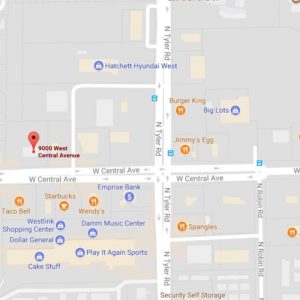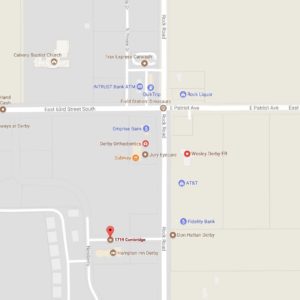Interventional
Cardiology
Our interventional services are supported by cutting-edge technology and a team of
phenomenal surgeons and physicians. Our catheterization and electrophysiology labs and
cardiovascular operating rooms offer state-of-the-art technologies to help physicians enhance patient outcomes.
Catheterization Labs
- Sophisticated digital imaging
- Roto-blade procedures
- Advanced hemodynamic monitoring
- An array of drug-eluting stents
Electrophysiology Lab
- Pacemaker insertions
- Ablation therapy
- 3-D imaging
Minimally Invasive Catheterization
Heartland Cardiology is proud to offer cutting-edge technology for the assessment and treatment of vascular and cardiac issues. Our physicians utilize a wide array of minimally invasive procedures utilizing our advanced catheterization labs.
Interventional cardiologists repair damaged vessels, narrowed arteries, and degraded heart valves which can be the result of various types of heart disease, including:
- Sophisticated digital imaging
- Roto-blade procedures
- Advanced hemodynamic monitoring
- An array of drug-eluting stents
What Are Catheters?
Catheters are flexible, thin tubes used in interventional cardiology to fix damaged arteries or other structures in the heart. Cardiac catheterization is also utilized in diagnostic testing to assess the arteries and functioning of a heart valve. It is a procedure that is minimally invasive and offers multiple benefits when compared to open surgery including less sedation, reduced potential for bleeding, and much faster recovery.
Radial Artery Catheterization
Cardiac catheters are inserted via the femoral artery of the groin or via the radial artery of the wrist. There are benefits and pitfalls to either method, but the risk of bleeding can be reduced with the radial procedure and it generally allows a faster recovery time.
Structural Heart Interventions
Structural heart disease is something many people have from birth, yet others develop it in later years. Structural heart diseases impacting blood flow and heart valves, until recently, needed to be treated via open heart surgery. Heartland Cardiology utilizes an array of successful alternatives such as catheter-based procedures that are minimally invasive and have great success rates.
Coronary Atherectomy
As time passes, coronary plaque (fat, cholesterol, and calcium) buildup can result in a blockage of heart blood flow from a narrowing in the arteries. Coronary artery disease (atherosclerosis), occurs when plaque buildup along the lining of the artery hardens and starts to decay.
When a blockage is unable to be treated with a stent or balloon procedure, a patient may be advised on a procedure known as rotational atherectomy, where an interventional cardiologist can help return blood flow to normal by using a catheter with a special tip that rotates to remove plaque from the artery walls.








